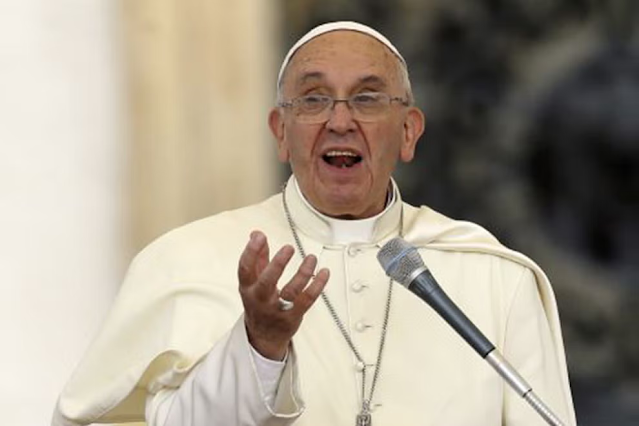Francis, Apostle of Change but not of Christ
Those who know this say that the two most effective words in advertising are, in this order, 'free' and 'new'. The first seems easy to understand, but the second not so much.
The veneration for the new is, to sum up, relatively new, in historical terms. Although our faith is not so much in the new or the old as in the eternal, the permanent, it is a matter of mere historical confirmation that the Magisterium of the Church, the doctors, the Popes and Tradition more often appreciate what is ancient, which is the original in the sense of close to the origin, novelties that the Popes have often explicitly condemned.
Today the time is different, and due to the environmental attraction of the widespread Enlightenment superstition of 'progress', 'change' has become a talismanic word with an invariably positive content, without thinking that the change can be for the worse as well as for the better, that illness or death are, in the end, evident changes. In a country like ours, where the PSOE chained three consecutive mandates with the simple slogan of “for change” there is no need to insist much on this idea.
Pope Francis is a great supporter of change. He continually encourages us not to look back (indietrism!) but towards the future, although looking at the future is not seeing anything precisely because it does not yet exist, and can only be built from what exists, which is the fruit of the past.
In fact, the current synod could have as its motto the same one of the socialists, 'for change', and Francis himself has emphasized this idea in the umpteenth interview, this one granted to the Argentine media Télam and glossed in these same pages.
The Church has to change, Francis reiterates. “The Church has to change, we think about how it changed from the Council until now and how it has to continue changing in the modality, in the way of proposing a truth that does not change,” he says. “The revelation of Jesus Christ does not change, the dogma of the Church does not change, but it grows, develops and sublimates like the sap of a tree.”
The image is beautiful, although perhaps not very accurate as an analogy: the tree does not discern, it does not make the decision to grow and develop nor can it choose in a fit of originality, being an apple tree, to start giving nuts. The tree is not free. The synod fathers and the Pope himself, yes.
And yes, it is true, the Church can change “in the modality, in the way of proposing the truth,” and it is even possible that she must do so. Preaching to a late medieval parish that has been marinated in Christianity for centuries is not the same as preaching to pagan Rome or the warlike barbarians of the North.
But if the need for those changes is based on Apostolic effectiveness, then there is a very simple means of judging when they are good and when they are less good: the results. And here we come to what is intriguing, what is disconcerting: the changes introduced after the Second Vatican Council translated into disastrous results, no matter how you look at it, whatever the objective metric used: proportion of Catholics, social influence, practice of faith, vocations, recourse to the sacraments.
So, well, we readily admit that the Church must change its ways. But also that if the changes applied do not work, continuing to insist on them seems insane, literally that definition of madness as that which leads us to always apply the same causes expecting different effects each time.
And it is impossible not to see that that Synodal church that urges us not to look back, looks back, to that ghostly 'spirit of the Council' that promised them so happy. It is an indietrism of octogenarians who rigidly resist recognizing that their experiments in springs brought to the Church the icy winter in which we live.
Source









.jpeg)

Comments